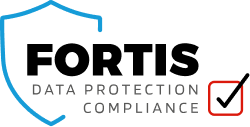4 REASONS FOR THE GROWING IMPORTANCE OF ISO 27001
1. Cybercrime is constantly increasing
The constant evolution of security threats and the increased regulatory demands mean that adhering to standards such as ISO 27001 is not optional but essential. A security breach can have far-reaching effects, and ISO 27001 acts as a reassuring shield against such risks. Whether you are a small or a large organisation, these numbers reflect the standard’s effectiveness and the growing necessity for its adoption.
ISO 27001 encourages organisations to continuously improve, as seen in requirement 10.2. It states that “the organisation needs to continually improve the suitability, adequacy, and effectiveness of the information security management system.” This continuous improvement approach helps organisations stay proactive, adaptive, and resilient against evolving cyber threats.
Here are some of the areas where ISO 27001 supports the organisation’s defences through continuous improvement:
- Adaptive risk management – Continuously assesses and mitigates emerging cyber threats, reducing vulnerabilities to cybercriminal tactics.
- Regular security updates, patching, and continuous monitoring – Ensures timely software updates, vulnerability management, and proactive threat detection to minimise exploitable weaknesses.
- Incident response and recovery – Strengthens detection, response, and recovery capabilities to minimise damage from cyberattacks.
- Security awareness and training – Reduces human-related security risks through ongoing employee education and awareness programs.
- Strengthening supply chain security – Enforces security standards for third parties to prevent supply chain cyber threats.
3. New information security requirements constantly appearing
As digitalisation and cybercrime evolve, new requirements and legislation will continuously emerge. The regulatory landscape is becoming increasingly complex, with stringent data protection laws like the GDPR and legislations to more critical sectors, like NIS2 and DORA, along with hefty fines for non-compliance. Supply chains may also require compliance in multiple requirements by these legislations, so it’s important that organisations have structured solutions in place for compliance.
So how is ISO 27001 relevant here? ISO 27001:2022 provides a framework that aligns with many of these regulations, helping organisations demonstrate compliance and avoid hefty fines and legal repercussions. As many regulations require robust security measures, implementing ISO 27001 helps organisations meet these requirements by ensuring structured controls, e.g. for data protection, risk management and access management.
What does this all mean?
In an era of increasing cyber threats and stringent regulations, ISO 27001 is no longer optional – it’s essential. By adopting this standard, businesses strengthen cyber security, build trust and future-proof operations against ever-changing risks.
Call Fortis DPC today on 03333 22 1011 or book a call here.
